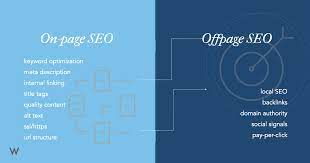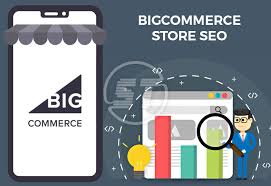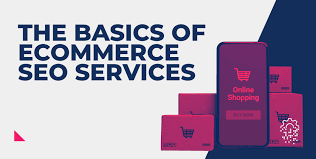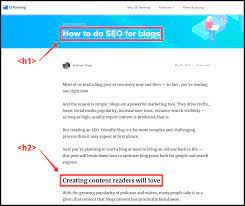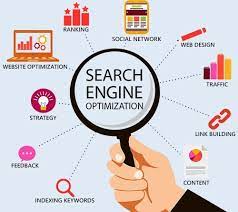Mastering Online Visibility with Wix SEO Wiz: A Comprehensive Guide
The Power of Wix SEO Wiz: Boosting Your Website’s Visibility
In the ever-evolving digital landscape, having a strong online presence is crucial for the success of any business. One essential aspect of enhancing your visibility on the web is search engine optimisation (SEO). With the rise of website builders like Wix, even those without technical expertise can create stunning websites. And now, with Wix SEO Wiz, optimising your site for search engines has never been easier.
What is Wix SEO Wiz?
Wix SEO Wiz is a powerful tool offered by Wix that guides users through the process of optimising their websites for search engines. Whether you’re a small business owner, an aspiring blogger, or an online retailer, Wix SEO Wiz provides you with the tools and insights needed to improve your site’s visibility on popular search engines like Google.
Key Features of Wix SEO Wiz:
- Keyword Suggestions: Wix SEO Wiz helps you identify relevant keywords that can boost your site’s rankings in search results.
- Meta Tags Optimization: Easily customise meta tags such as title tags and meta descriptions to improve click-through rates.
- Sitemap Submission: Submit your sitemap to search engines to ensure that all pages on your site are indexed properly.
- Mobile-Friendly Recommendations: Receive suggestions on how to make your site more mobile-friendly, which is crucial for ranking well in mobile search results.
- Structured Data Markup: Implement structured data markup to enhance how search engines display information about your site in search results.
The Benefits of Using Wix SEO Wiz:
By leveraging the capabilities of Wix SEO Wiz, you can:
- Increase organic traffic to your website
- Improve your site’s ranking on search engine results pages (SERPs)
- Enhance user experience by making your site more accessible and user-friendly
- Gain valuable insights into how users discover and interact with your site
If you’re looking to take your website’s visibility to the next level and attract more visitors, consider harnessing the power of Wix SEO Wiz. With its user-friendly interface and comprehensive features, optimising your website for search engines has never been simpler.
9 Essential Tips for Enhancing Your Wix Site’s SEO
- Customise your page titles with relevant keywords
- Write unique meta descriptions for each page
- Optimise your images by using descriptive file names and alt text
- Create a sitemap and submit it to search engines
- Use headings (H1, H2, etc.) to structure your content
- Add internal links between pages on your site
- Regularly update your content to keep it fresh and relevant
- Make sure your site is mobile-friendly for better SEO performance
- Monitor your site’s performance using Wix SEO tools
Customise your page titles with relevant keywords
Customising your page titles with relevant keywords is a vital strategy when utilising Wix SEO Wiz. By incorporating targeted keywords into your page titles, you can significantly enhance your website’s visibility on search engine results pages. This practice not only helps search engines understand the content of your pages better but also increases the likelihood of attracting organic traffic from users searching for those specific keywords. With Wix SEO Wiz, easily customising your page titles with relevant keywords can make a substantial difference in improving your site’s search engine rankings and driving more qualified visitors to your website.
Write unique meta descriptions for each page
Crafting unique meta descriptions for each page on your website is a crucial tip when utilising Wix SEO Wiz. By customising these concise summaries for individual pages, you not only enhance the relevance of your content to search engines but also entice users to click through to your site. Unique meta descriptions provide a valuable opportunity to showcase the distinct offerings of each page, improving visibility and click-through rates in search engine results. This simple yet effective practice can significantly boost the overall performance and discoverability of your website, making it a key strategy for maximising the impact of Wix SEO Wiz.
Optimise your images by using descriptive file names and alt text
Optimising your images by using descriptive file names and alt text is a crucial tip when utilising Wix SEO Wiz. By naming your image files with relevant keywords and providing informative alt text, you not only enhance the accessibility of your website for visually impaired users but also improve your chances of ranking higher in image search results. This practice helps search engines understand the context of your images, ultimately boosting your overall SEO efforts and driving more organic traffic to your site.
Create a sitemap and submit it to search engines
Creating a sitemap and submitting it to search engines is a crucial step in improving your website’s visibility and ensuring that all your web pages are properly indexed. With Wix SEO Wiz, this process becomes straightforward and efficient. By generating a sitemap that outlines the structure of your site and submitting it to search engines like Google, you help search engine crawlers navigate and understand your website better, ultimately leading to improved rankings and increased organic traffic.
Use headings (H1, H2, etc.) to structure your content
Structuring your content with headings (H1, H2, etc.) is a valuable tip when utilising Wix SEO Wiz. By incorporating clear and relevant headings throughout your website, you not only enhance the readability and organisation of your content but also signal to search engines the hierarchy and importance of different sections. This practice not only improves user experience by making it easier for visitors to navigate your site but also boosts your SEO efforts by helping search engines better understand and index your content. With Wix SEO Wiz, optimising your headings can significantly impact your site’s visibility and overall performance in search engine results.
Add internal links between pages on your site
Adding internal links between pages on your website is a valuable strategy to enhance user experience and improve SEO rankings. By creating a network of interconnected pages, you not only help visitors navigate your site more easily but also signal to search engines the relevance and hierarchy of your content. Internal linking can distribute link equity throughout your site, boosting the authority of individual pages and increasing the likelihood of them appearing higher in search results. Utilising Wix SEO Wiz to incorporate strategic internal links can ultimately lead to a more cohesive and user-friendly website that performs better in organic search.
Regularly update your content to keep it fresh and relevant
Ensuring that your website’s content remains fresh and relevant is a key strategy recommended by Wix SEO Wiz. By regularly updating your content, you not only provide value to your visitors but also signal to search engines that your site is active and up-to-date. Fresh content can attract more traffic, engage users, and improve your site’s search engine rankings. With Wix SEO Wiz’s guidance on maintaining relevancy through content updates, you can enhance the overall performance and visibility of your website in the competitive online landscape.
Make sure your site is mobile-friendly for better SEO performance
Ensuring that your website is mobile-friendly is essential for improving its SEO performance. With the increasing number of users accessing the web on mobile devices, search engines like Google prioritise mobile-friendly sites in their rankings. By utilising Wix SEO Wiz to make your site responsive and optimised for mobile viewing, you not only enhance user experience but also boost your chances of ranking higher in search results. Prioritising mobile-friendliness is a strategic move to attract more visitors and improve overall visibility online.
Monitor your site’s performance using Wix SEO tools
Monitoring your site’s performance using Wix SEO tools is essential for ensuring that your website is optimised for search engines and delivering the desired results. By utilising the monitoring features provided by Wix SEO Wiz, you can track key metrics such as organic traffic, keyword rankings, and user engagement. This data allows you to identify areas for improvement, make informed decisions about your SEO strategy, and ultimately enhance your site’s visibility and effectiveness online. Regularly monitoring your site’s performance through Wix SEO tools empowers you to stay ahead of the curve and continuously refine your website for optimal results in search engine rankings.

